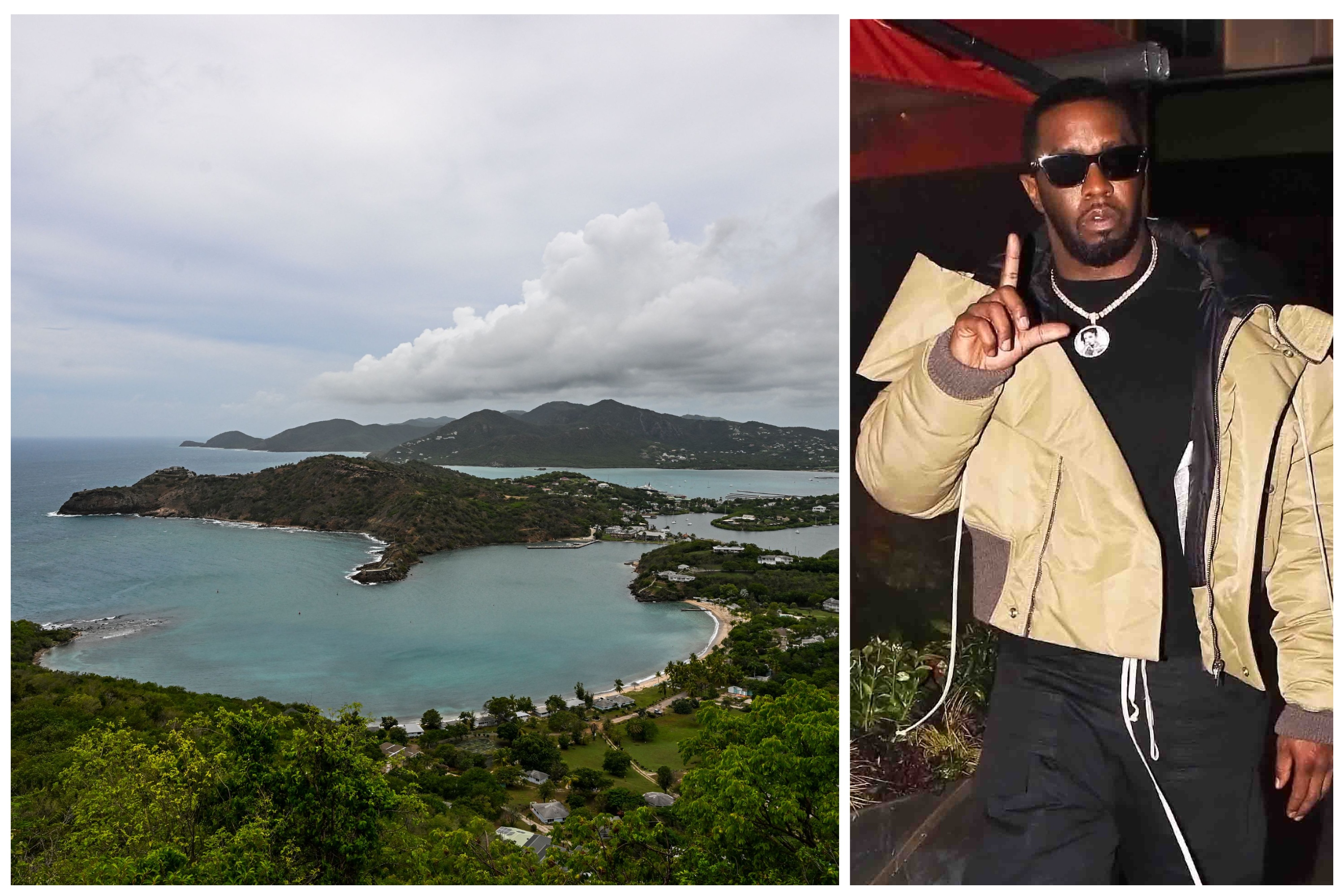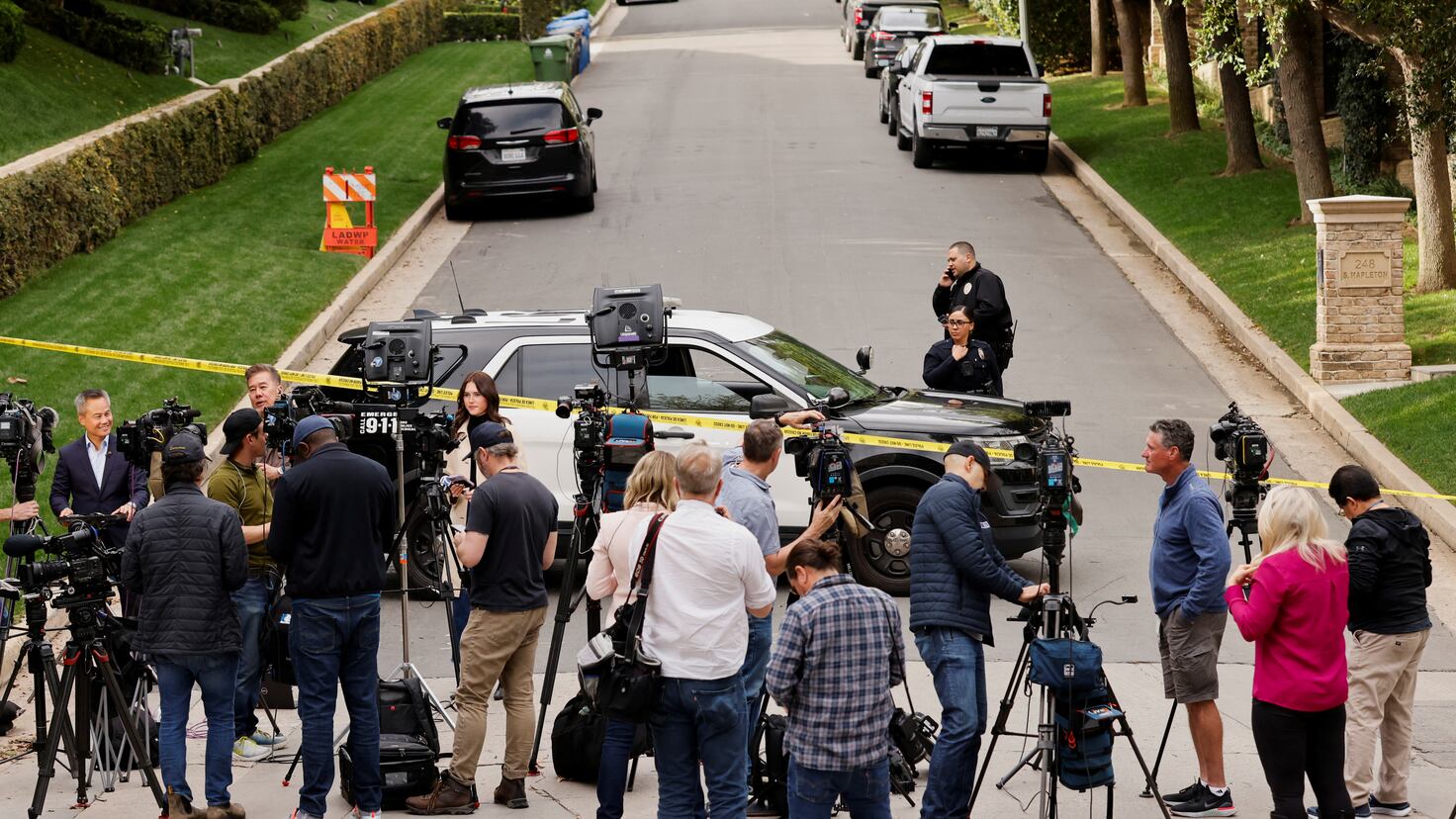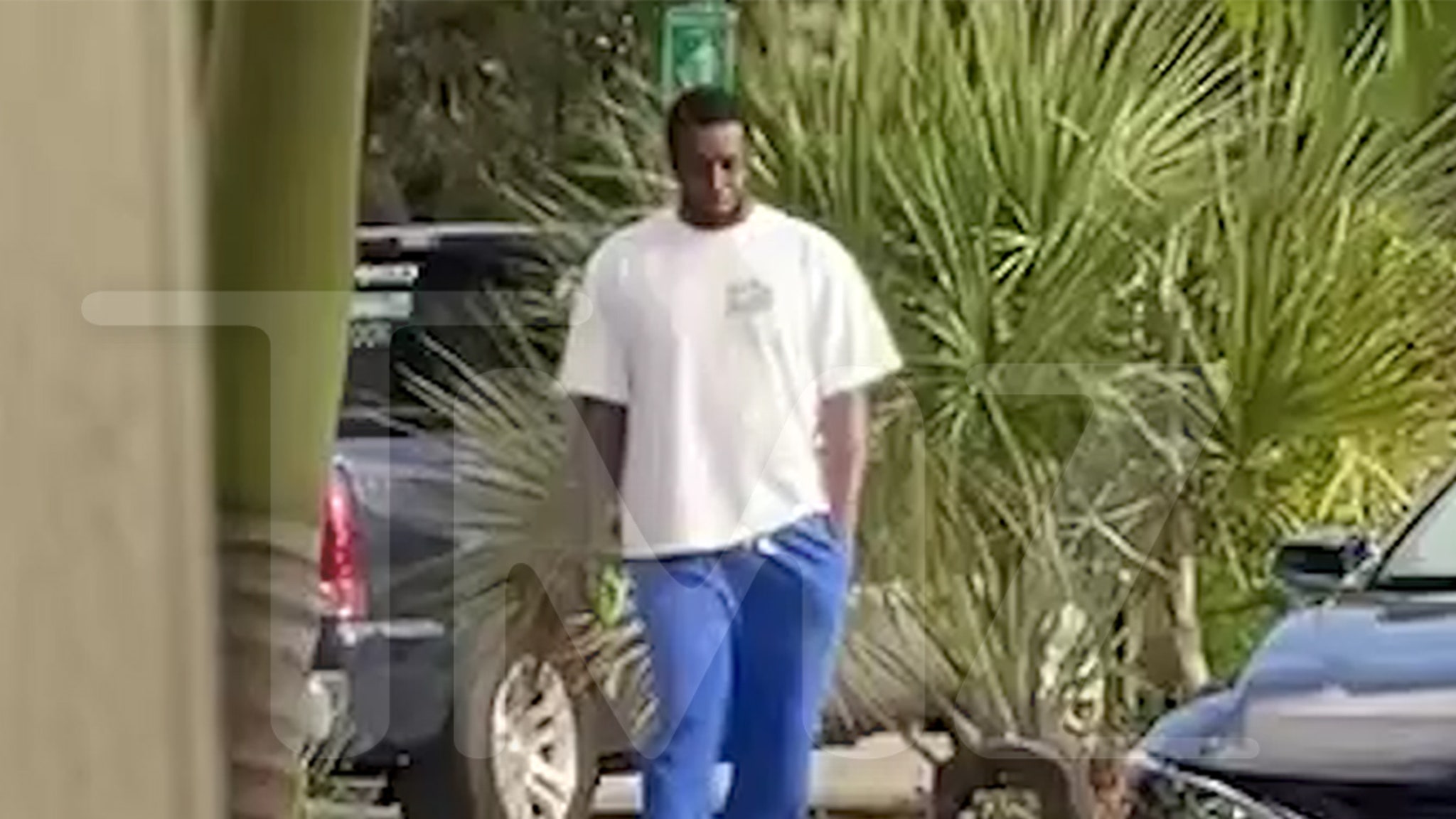Many folks are wondering about the legal situation involving Sean "Diddy" Combs, especially with recent reports suggesting he might be in Antigua. The big question on a lot of people's minds is whether someone like him, or really anyone, can be brought back to the United States from a place like Antigua to face charges. It's a topic that involves a lot of legal talk, but at its heart, it's about how countries work together when someone is accused of something serious across borders.
When a person is wanted for a crime in one country and happens to be in another, there's a special process called extradition that comes into play. This process is how one country formally asks another to hand over an individual so they can face justice back home. It's not always a quick or simple thing, and there are many rules and agreements that need to be followed. This kind of request often depends on long-standing agreements between nations, and too it's almost a very specific dance of legal steps.
This article will look at how this whole system works, focusing on what it means for someone in Antigua who might be wanted in the United States. We will explore the general ideas behind extradition, what makes it possible, and what sorts of things might make it a bit more difficult. We will also touch on the specific details that could play a part in a situation where someone like Diddy could be asked to leave Antigua to go back to the U.S. for legal reasons.
Table of Contents
- Sean "Diddy" Combs - A Quick Look
- What is Extradition and How Does It Work?
- How Can Diddy Be Extradited From Antigua? - The General Idea
- The Legal Framework - Treaties and Agreements
- What Kinds of Charges Allow Extradition for Diddy?
- Antigua's Stance - What Does Their Law Say?
- The Antiguan Legal Process - Steps for Diddy's Extradition
- Can Diddy Be Extradited From Antigua If He Fights It?
- The United States' Request - What Does It Involve?
- The Evidence Needed to Extradite Diddy From Antigua
- What Challenges Might Arise for Diddy's Extradition?
- What Could Happen Next for Diddy's Extradition?
- The Long Road Ahead - Timelines for Diddy's Situation
Sean "Diddy" Combs - A Quick Look
Sean Combs, known to many as Diddy, P. Diddy, or Puff Daddy, has been a very big name in music and business for quite some time. He's built a rather successful career as a record producer, a performer, and an entrepreneur. Over the years, he has launched various businesses and helped shape a lot of the sound in popular music. His life has certainly been in the public eye for a very long time, and that's just a part of his story.
Personal Details / Bio Data
| Full Name | Sean John Combs |
| Known As | Diddy, P. Diddy, Puff Daddy |
| Occupation | Record Producer, Rapper, Entrepreneur |
| Birth Year | 1969 |
| Nationality | American |
What is Extradition and How Does It Work?
Extradition is, basically, the way one country asks another country to send someone back to face charges or serve a sentence. It's a formal request, and it's not something that just happens on a whim. There are very specific legal steps involved, and usually, there needs to be an agreement, like a treaty, between the two countries. Without these agreements, it can be really tough to get someone handed over, so that's a key part of how it all works.
The whole idea behind it is to make sure that people cannot simply escape justice by crossing a border. If a person commits a crime in one place and then goes to another, the country where the crime happened can ask for that person to be returned. This helps maintain a sense of order in the world and ensures that serious accusations can be looked into, no matter where the person might try to go. It's a system that, in a way, tries to make the world a bit smaller for those accused of wrongdoing.
How Can Diddy Be Extradited From Antigua? - The General Idea
For someone like Diddy to be brought from Antigua to the United States, the U.S. government would first need to make a formal request. This request is not just a simple phone call; it's a very detailed package of legal papers that explains why the person is wanted. It would include information about the charges, any evidence gathered, and the specific laws that have been broken. This paperwork goes through official channels, typically starting with the State Department in the U.S. and then going to the authorities in Antigua, so that's a very important initial step.
Antigua, on its part, would then need to review this request according to its own laws and any agreements it has with the United States. They would check to make sure everything is in order and that the request meets their legal requirements. It's not a given that they will simply agree; they have their own legal system and their own rules to follow. This means that even if a request is made, there are still quite a few hurdles to clear before any actual transfer of a person could happen.
The Legal Framework - Treaties and Agreements
The backbone of any extradition between two countries is usually an extradition treaty. These are formal agreements that lay out the rules for when and how one country will hand over a person to another. The United States and Antigua, as it happens, do have an extradition treaty in place. This treaty spells out things like what types of crimes are covered, what evidence is needed, and what rights the person being sought has. It's a very important document that pretty much guides the whole process.
Without such a treaty, extradition becomes much, much harder, sometimes even impossible, unless there are special circumstances. The treaty makes the process more predictable and gives both countries a clear set of guidelines to follow. It means that both sides have agreed beforehand on how they will cooperate in these kinds of situations. So, in a situation where someone like Diddy could be extradited from Antigua, this treaty would be the main legal tool used.
What Kinds of Charges Allow Extradition for Diddy?
Extradition treaties usually list the types of offenses for which a person can be handed over. These are typically serious crimes, not minor ones. Things like murder, serious drug offenses, fraud, and other major felonies are usually included. A key principle here is "dual criminality," which means the alleged crime must be considered a crime in both countries. So, if someone is accused of something that's only illegal in the requesting country but not in the country where they are, extradition might not be possible, that's a really big point.
For someone to be extradited, the charges against them must meet the criteria set out in the treaty between the U.S. and Antigua. This means that whatever Diddy might be accused of in the United States, it would also need to be considered a serious criminal offense under Antiguan law. If the charges don't line up in this way, or if they are not serious enough according to the treaty, then the request could be denied. It’s a bit like needing two keys to open a lock, both countries have to agree the crime fits the bill.
Antigua's Stance - What Does Their Law Say?
Antigua, like any sovereign nation, has its own laws and legal system that govern how it handles extradition requests. While they have a treaty with the United States, they still follow their own procedures and legal principles. Their courts would be the ones to ultimately decide whether a person should be handed over, after reviewing all the evidence and arguments. This means that even with a treaty, Antigua's legal system has the final say in its territory, and that's a very important distinction.
The Antiguan legal system is based on English common law, which means it shares many similarities with the legal systems in the United States and other Commonwealth countries. This can make the process a bit more familiar for both sides, but it doesn't mean it's automatic. Antiguan judges will look at whether the request is valid, if the person's rights are protected, and if the charges meet the requirements of their own laws and the treaty. It's a pretty thorough review, as a matter of fact.
The Antiguan Legal Process - Steps for Diddy's Extradition
If the United States were to formally request Diddy's extradition from Antigua, the process in Antigua would typically begin with the Antiguan authorities receiving the request. They would then review it to make sure it's complete and meets the initial requirements. If it does, a local court would usually issue a warrant for the person's arrest. This arrest is a necessary step to bring the individual before the court to begin the formal extradition proceedings, so that's where it really gets going.
Once arrested, the person would appear before an Antiguan magistrate or judge. At this point, they would be informed of the request and their rights. They would have the chance to get legal representation and present arguments against their extradition. The Antiguan court would then hold hearings to determine if there is enough evidence to justify sending the person back. This is not a trial about guilt or innocence, but rather about whether the legal requirements for extradition have been met. It's a bit like a preliminary hearing, to be honest.
Can Diddy Be Extradited From Antigua If He Fights It?
Absolutely, a person facing an extradition request in Antigua has the right to challenge it. This is a fundamental part of the legal process in most countries, including Antigua. They can argue that the request doesn't meet the treaty requirements, that the charges are not valid in both countries, or that their human rights would be violated if they were sent back. These arguments would be heard by the Antiguan courts, and the legal battle could take some time, that's just how these things work.
Fighting an extradition request means that the person's legal team would present their case to the Antiguan judicial system. This could involve multiple court appearances, submitting legal documents, and appealing decisions to higher courts if necessary. The process can be quite lengthy and complex, as both sides present their arguments. The final decision would rest with the Antiguan courts, and potentially the Antiguan government, after all the legal steps have been followed. It's a pretty involved legal fight, typically.
The United States' Request - What Does It Involve?
When the United States wants someone extradited from another country, it's a very formal and serious undertaking. The request originates from the U.S. Department of Justice, usually after a grand jury has issued an indictment or a warrant for arrest. This request then goes through the U.S. Department of State, which is responsible for diplomatic relations. They prepare the official diplomatic note and all the supporting legal documents to send to the foreign country, so it's a pretty big deal from their end.
The request package is quite comprehensive. It includes copies of the charges, the arrest warrant, and summaries of the evidence that supports the charges. It also explains the relevant U.S. laws that the person is accused of breaking. All of this information is prepared very carefully to ensure it meets the requirements of the extradition treaty and the laws of the country being asked for help. This thoroughness is meant to make the process as smooth as possible, though it's still a detailed matter.
The Evidence Needed to Extradite Diddy From Antigua
For the U.S. to successfully get Diddy extradited from Antigua, they would need to provide enough evidence to satisfy the Antiguan courts. This doesn't mean proving guilt beyond a reasonable doubt, which is what happens in a trial. Instead, it means showing that there is "probable cause" or a "prima facie" case – essentially, enough evidence to suggest that a crime was likely committed and that the person requested is the one who likely committed it. It's a lower bar than a full trial, but it still requires a good amount of supporting material, you know.
The evidence provided would typically include things like sworn statements from witnesses, police reports, and any other documents or materials that link the person to the alleged crimes. The Antiguan court would examine this evidence to make sure it meets their legal standards for extradition. If the evidence is deemed insufficient, or if it doesn't align with the dual criminality principle, the Antiguan court could refuse the request. So, the quality and relevance of the evidence are very, very important.
What Challenges Might Arise for Diddy's Extradition?
Extradition cases, especially high-profile ones, often come with a lot of challenges. One common hurdle is the legal arguments raised by the person's defense team. They might argue that the charges are politically motivated, that the person's human rights would be violated if returned, or that the evidence is simply not strong enough. These arguments can lead to lengthy court battles and appeals, which can significantly delay the process, that's just how it goes sometimes.
Another challenge can be diplomatic or political considerations. While extradition is primarily a legal process, there can sometimes be underlying political sensitivities between countries. Also, issues like the condition of prisons in the requesting country, or concerns about a fair trial, can sometimes be raised as reasons to deny an extradition. These are all factors that can make the path to extradition a bit bumpy, to be honest.
What Could Happen Next for Diddy's Extradition?
If an extradition request were to be made and processed, there are a few possible outcomes. The Antiguan courts could decide that the legal requirements for extradition have been met and order the person to be handed over to the U.S. authorities. In this scenario, arrangements would be made for the transfer, and the person would be taken back to the United States to face the charges. This is, of course, the outcome the requesting country hopes for, as a matter of fact.
On the other hand, the Antiguan courts could deny the extradition request. This could happen if they find that the evidence is not sufficient, that the charges do not meet the dual criminality requirement, or if there are other legal or human rights reasons not to extradite. If the request is denied, the person would remain in Antigua, and the U.S. would not be able to compel their return through this process. It's a very clear-cut decision one way or the other.
The Long Road Ahead - Timelines for Diddy's Situation
Extradition cases are rarely quick. They can often take many months, or even years, to fully resolve. This is because there are so many legal steps involved, from the initial request to court hearings, potential appeals, and administrative procedures. Each step takes time, and if the person fights the extradition, it can add significant delays. The process can be a very drawn-out affair, requiring patience from all sides involved, you know.
The timeline depends on many things: how quickly the requesting country prepares its paperwork, how efficiently the requested country's legal system moves, and how vigorously the person fights the extradition. There are no fixed timelines, and each case is unique. So, for someone like Diddy, if an extradition process were to begin, it would likely be a very long legal journey, with many twists and turns along the way. It's a pretty lengthy process, virtually always.
So, to recap, the possibility of someone like Diddy being extradited from Antigua hinges on a formal request from the U.S., the existence of an extradition treaty between the two nations, and the alignment of charges with laws in both countries. Antigua's own legal system would then review the evidence and arguments, with the person having the right to challenge the request


